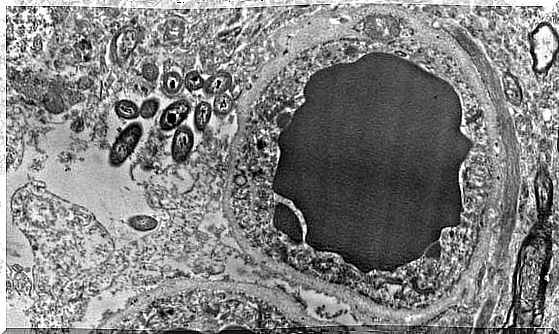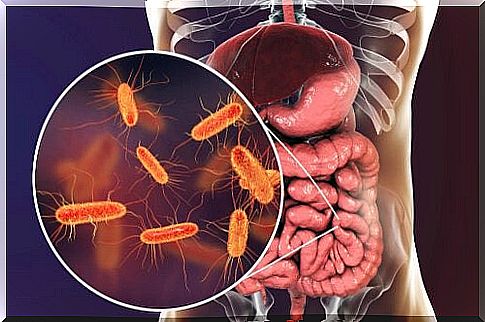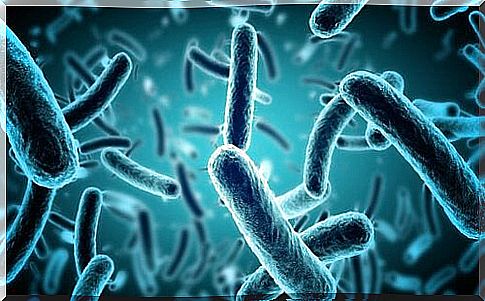Brain Microbiome: Intestinal Bacteria In The Human Brain

We know a little about the relationship between the gut microbiota and the brain, but this association seems to be more intimate than we thought. At the last meeting of the Society of Neuroscience, the University of Alabama presented a report showing that some intestinal bacteria inhabit different regions of the brain, which appears to constitute a brain microbiome.
This discovery is both fascinating and intimidating. We’ve found the bacteria, we know they’re there, but we still don’t have an explanation as to how they got to the brain, or whether they’re beneficial or harmful. It is even believed that they can influence mood and even personality. Let’s go deeper.
What is the gut microbiome?
The intestinal microbiome is the set of microorganisms that live in our intestines, made up of billions of different species of bacteria, which, in turn, are made up of more than three million genes. Of all of them, only a third is common to all human beings; the rest is unique to each person. Thus, the gut microbiome is an important part of the identity of each one of us.
Among its most important functions we can highlight the regulation of the immune system, the absorption of nutrients and the control of external pathogens. Any alteration in the intestinal microbiota can be the origin of autoimmune diseases, allergies and infections. In fact, it has also recently been linked to Alzheimer’s and Parkinson’s.
On the other hand, imbalances in this flora generate endotoxins, high levels of oxidation, and accumulation of abdominal fat. Also, chronic inflammation causes cardiovascular problems and diabetes.
Although there is widespread fear of microbes and bacteria, the truth is that we cannot live without them. We are not conscious, but we have billions of living beings living inside our bodies.

the brain microbiome
The presence of bacteria in the brain generated curiosity and surprise in the scientific community. In fact, one of the first questions to be resolved is how they reach the brain, as it is protected by the blood-brain barrier.
The blood-brain barrier is a protection system against the entry of foreign substances, which allows the passage of water, lipid-soluble molecules and some gases. It also allows the selective passage of amino acids and other molecules. However, the bacteria found in the brain are mostly intestinal phylogeny.
They are glial cells that support neurons, astrocytes, which prevent neurotoxins and other substances from entering the brain. These harmful substances, when they manage to overcome the barrier in some way, tend to cause inflammation with very negative and even deadly consequences. Interestingly, astrocytes seem to be the favorite place for these intestinal bacteria to live in the brain.
Although some proposals have been defined on how bacteria reach the brain, such as through the nerves of the intestine, the blood-brain barrier or the nose, the cause is still unknown. There is still a lot to investigate about this possible brain microbiome.

The search
Dr. Rosalind Roberts, along with her team at Psychiatry and Behavioral Neurobiology at the University of Alabama, were responsible for this discovery. They studied the brains of 34 people; half of them were healthy individuals, and the others suffered from schizophrenia. In addition, a parallel study was carried out with rats to rule out that the bacteria only appeared after death, or that the study could have had any contamination error.
Both in one study and the other, the presence of bacteria in the human and rat brain was observed in non-infectious or traumatic situations. In fact, they were found in several brain zones. Mainly in the dark matter, hippocampus and prefrontal cortex, and little in the striatum. Furthermore, none of the examined brains showed inflammation.
These results left the door open for speculation and possible new research on the brain microbiome. At the moment, the possibility that these microbes are related to behavior, mood and some neurological diseases is being evaluated.
The results about healthy people lead us to think that these bacteria can also be beneficial in the brain, as they are in the intestine. Currently, no possibility can be ruled out.
Main image by Rosalía Roberts, Courtney Walker and Charlene Farmer









